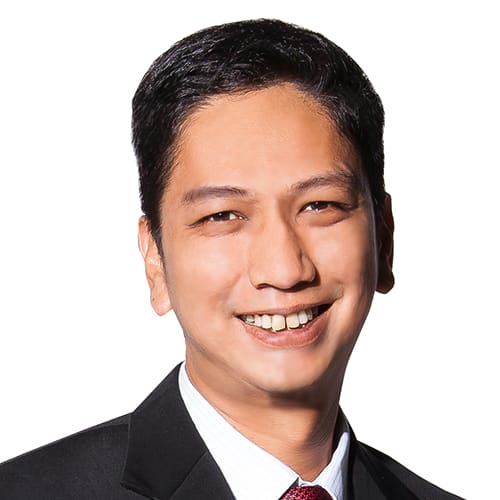analysis Asia
As Prabowo marks one year in power, intrigue and despair grow over rival party PDI-P's role
Despite controlling nearly a-fifth of parliamentary seats, PDI-P has largely refrained from challenging President Prabowo’s contentious policies and legislation.
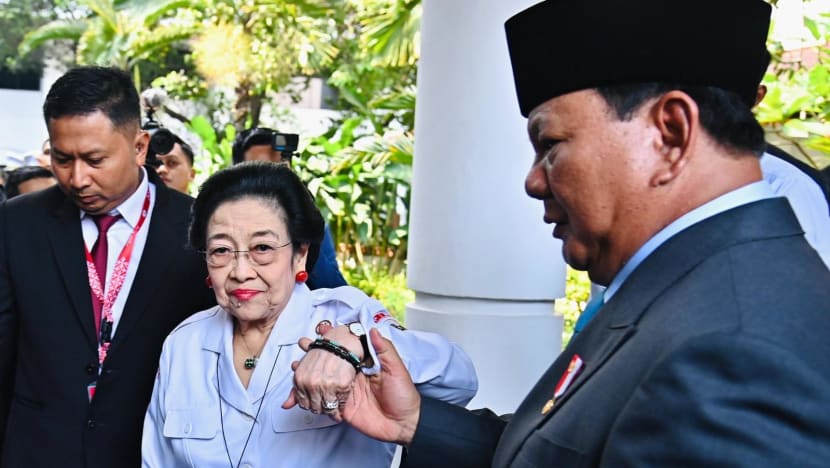
President Prabowo Subianto and PDI-P chairwoman Megawati Soekarnoputri entering the Pancasila building in June 2025. (Photo: Presidential Secretariat Press Bureau/Laily Rachev)

This audio is generated by an AI tool.
JAKARTA: When Prabowo Subianto became Indonesia’s eighth president in 2024, the country’s biggest political party, the Indonesian Democratic Party of Struggle (PDI-P), pointedly avoided calling itself the opposition, choosing instead the softer label of a “balancing party”.
The PDI-P, which controls 110 out of 580 seats in parliament, is one of only two parties not in Prabowo’s ruling coalition. The other party is the National Democratic Party, which has 69 seats in parliament.
Intrigue over the PDI-P’s approach continues as Prabowo marks one year in office on Oct 20, and remains a talking point as the government pushes on with flagship policies such as the free-meals programme and reform of sprawling state-owned enterprises.
Some observers have expressed disappointment in the PDI-P’s muted response to some controversial policies, lamenting a weakened system of checks and balances.
The PDI-P was known as a fierce opposition during Susilo Bambang Yudhoyono’s presidency from 2004 to 2014.
But despite forming a decent-sized minority of nearly a-fifth of Indonesia’s House of Representatives currently, it has shown little resistance so far to policies and legislation initiated by the Prabowo government, analysts said.
Among the laws which went virtually unchallenged by its members of parliament (MPs) was the controversial amendment to the country’s military law, which granted permission for active soldiers to assume civilian positions in 14 government agencies and ministries.
Despite massive public outcry, the law was passed unanimously on Mar 20, just one month after it was first deliberated in parliament.
“The legislature now seems to just go along with whatever the government says,” Kunto Adi Wibowo, a political analyst from West Java’s Padjadjaran University, told CNA. “The joke is that the parliament has become like one of the ministries in Prabowo’s Cabinet.”
The PDI-P also defended the government’s decision to provide a 50 million rupiah monthly housing allowance to MPs.
The monthly allowance, which was about 10 times the minimum wage in Jakarta, triggered nationwide protests in August and September. And when police were accused of excessive use of force in handling demonstrations that ensued, experts noted that PDI-P politicians remained largely silent.
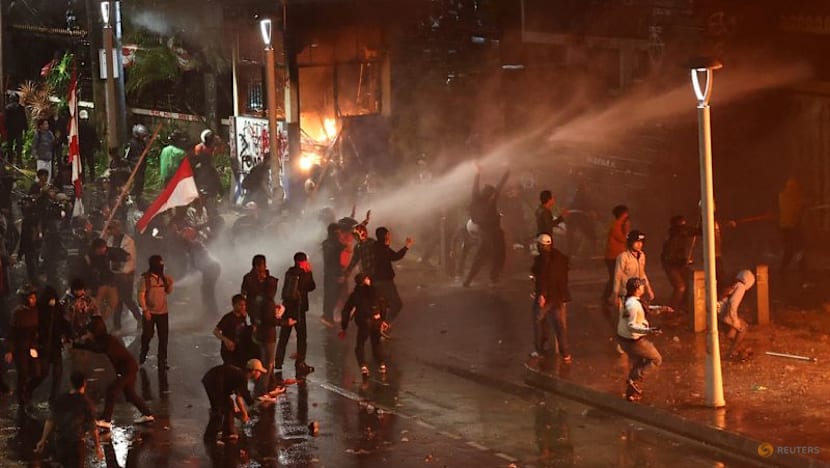
Hendri Satrio, a political analyst from Jakarta’s Paramadina University, said the protests reflected a deeper public frustration with the erosion of Indonesia’s democracy.
“Right now, the public is relying on three major groups to keep the government on track: Civil society, academics and mass media,” Hendri said. “These are the forces people now depend on to oversee the government, because there’s no real opposition.”
Experts warned that unless PDI-P begins offering meaningful criticism of government policies, public anger could continue to spill onto the streets.
TIES THAT GO WAY BACK
Ties between PDI-P founder and chairwoman Megawati Soekarnoputri and Prabowo go decades back.
They have maintained a close and cordial relationship ever since Prabowo ran as Megawati’s running mate in the 2009 presidential election. Megawati was Indonesia's fifth president, serving from 2001 to 2004.
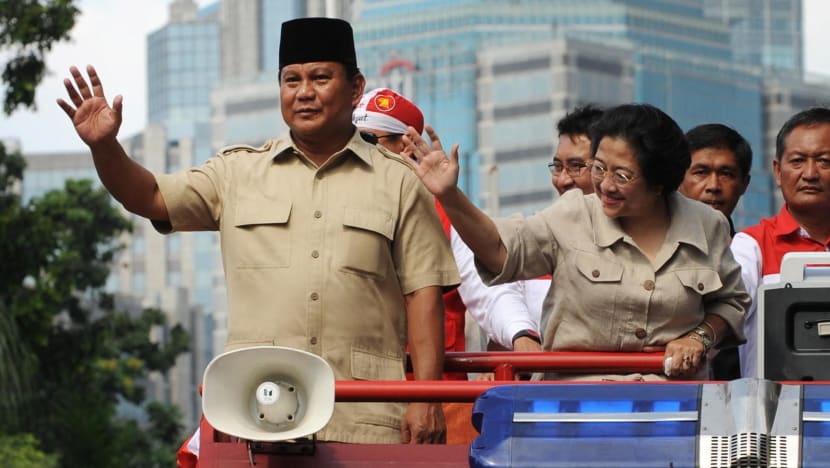
Even when PDI-P’s candidate Joko Widodo, also known as Jokowi, defeated Prabowo in the 2014 presidential election and Prabowo’s Gerindra Party moved into the opposition, the rapport between Megawati and the former general continued.
But the relationship soured in late 2023 when Prabowo named Jokowi’s son Gibran Rakabuming Raka as his running mate.
The PDI-P subsequently sacked Jokowi and Gibran as party members for not supporting PDI-P’s candidate Ganjar Pranowo.
Ever since Prabowo won the presidential election in February 2024, Prabowo has reportedly been trying to woo PDI-P to join his Cabinet, which was already represented by almost every political party in Indonesia.
The PDI-P was ambiguous in its stance, giving conflicting signals whether it will join the Cabinet.
Days before Prabowo’s inauguration, PDI-P’s central executive board chair Puan Maharani said the party strongly supports Prabowo’s government and dismissed the notion of differences in opinion within PDI-P on joining Prabowo’s Cabinet, news agency Antara reported.
Prabowo and Megawati finally met in person more than one year after the presidential election. In April, Prabowo paid a private visit to Megawati’s residence in Central Jakarta for a closed-door meeting that lasted about an hour and a half. The two have since met privately on at least two more occasions.
The April meeting proved to be a game changer, causing the PDI-P to take a softer stance towards the new administration. House Speaker Puan, who is Megawati’s daughter, is also said to favour a more accommodating approach, some commentators have noted.
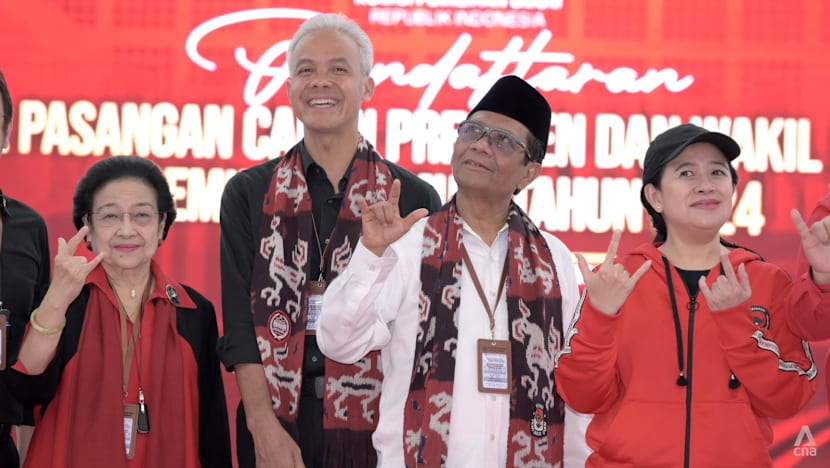
Another key factor is Prabowo’s popularity, analysts said.
During the 2024 presidential election, Prabowo won 58.6 per cent of the vote against his two rivals: Anies Baswedan and PDI-P’s candidate Ganjar Pranowo. It was the largest victory margin in Indonesia’s presidential history.
One year into his presidency, Prabowo remains popular, with an approval rating hovering at around 80 per cent, according to several national surveys.
Key events in President Prabowo's first year
Oct 20, 2024: Prabowo Subianto was sworn in as president of Indonesia and Gibran Rakabuming Raka was sworn in as vice-president.
Nov 8-10, 2024: Prabowo made his first overseas visit since taking office, travelling to China to meet Chinese President Xi Jinping, Premier Li Qiang and number three official Zhao Leji.
Nov 10-12, 2024: Prabowo flew to Washington at the invitation of US President Joe Biden. He also congratulated Donald Trump for winning the US presidential election.
Nov 27, 2024: Parties from Prabowo’s Advance Indonesia Coalition won resoundingly in Indonesia’s first simultaneous regional elections to elect local leaders. PDI-P’s Pramono Anung wins Jakarta governor race.
Dec 16, 2024: Former Indonesian president Joko Widodo and his son Gibran were officially dismissed from PDI-P for backing Prabowo in the presidential election.
Jan 6, 2025: Prabowo’s flagship free nutritious meals programme launched.
Jan 23, 2025: Prabowo ordered a 256 trillion rupiah budget cut for ministries and state agencies to reallocate funds towards flagship initiatives such as the free meal programme.
Feb 19, 2025: Prabowo made his first Cabinet change, replacing Higher Education, Science and Technology Minister Satryo Soemantri Brodjonegoro with Brian Yuliarto.
Apr 7, 2025: Prabowo held first meeting with PDI-P chairwoman Megawati Soekarnoputri since his inauguration.
Aug 1, 2025: Prabowo pardoned former trade minister Thomas Lembong and senior politician Hasto Kristiyanto days after the two were convicted in separate cases of corruption. It was the first time in Indonesian history that pardons were given to corruption convicts.
Aug 15, 2025: Prabowo vowed to crack down on exploitative business practices and corruption in first State of Nation address.
Aug 25-September 2025: Nationwide protests against perks for Members of Parliament (MPs), police violence and other issues.
Sep 8, 2025: Prabowo announced major Cabinet reshuffle, replacing key economic and security ministers including Finance Minister Sri Mulyani Indrawati and Budi Gunawan, the coordinating minister for politics and security.
“Part of the reason why Prabowo is popular is that he has been promising policies and programmes which are equally popular in people’s eyes,” said Hendri Satrio of Paramadina University. “Which is why not many politicians are willing to openly criticise Prabowo.”
Among these initiatives is the free nutritious meals programme for children and pregnant women. While critics have dismissed it as unrealistic and poorly targeted, it enjoys overwhelming public support, with 77 per cent of the 2,200 respondents surveyed by Indonesia Social Survey in July saying they supported it.
On Aug 1, a day before the PDI-P’s national congress in Bali, Prabowo also extended clemency to Hasto Kristiyanto, PDI-P’s secretary-general who was sentenced to 3.5 years in prison for his role in the 2019 bribery of an election official.
The amnesty meant that while Hasto remains legally guilty, he would not have to serve his jail term.
At the PDI-P’s national congress, Megawati declared that her party would support “all government policies which benefit the many”.
She also said PDI-P “does not position itself as an opposition”, preferring instead to describe its role as “a counter-balance party”.
“Never has an Indonesian president been this powerful,” said Adi Prayitno, a political observer from Jakarta’s Syarif Hidayatullah State Islamic University. “All the political forces are behind Prabowo.”
SUBSTANCE OVER LABELS?
The PDI-P’s criticism of Prabowo has been limited to how some of the president’s flagship programmes have been executed, observers noted.
Even when Prabowo’s free meal programme was linked to dozens of food poisoning incidents, the PDI-P refused to call for its suspension. According to the Ministry of Health, more than 11,000 children have been affected since the programme began in January.
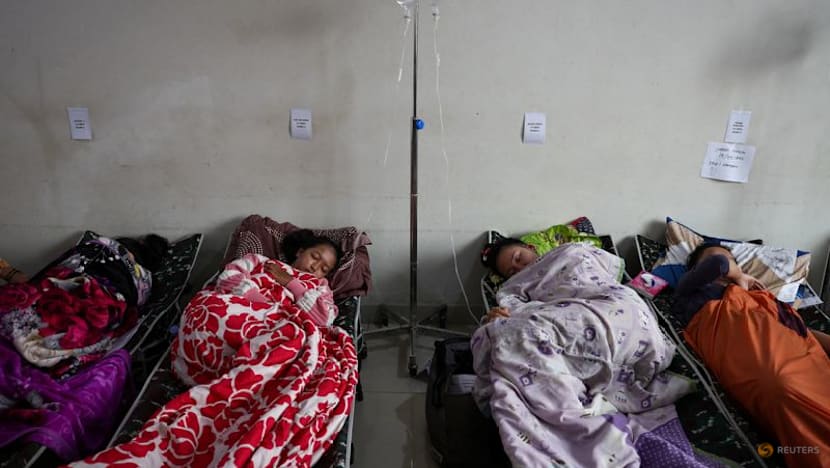
“We want recommendations to evaluate those responsible so that similar incidents won’t happen again,” PDI-P lawmaker Charles Honoris said during a hearing with the National Nutrition Agency last month.
“As for whether the programme will be stopped or not, that’s up to the president. If he feels the programme is no longer needed, he may decide to end it.”
The National Nutrition Agency (BGN) is the key institution overseeing the free meal programme.
Adian Napitipulu, another PDI-P legislator, told CNA that his party has always acted in the Indonesian people’s interests, including by opening so-called “aspiration houses” across the country to allow citizens to voice their grievances directly.
“Labels are less important than substance. What matters is that PDI-P has always safeguarded, and will continue to safeguard people’s best interests,” Adian said.
Meanwhile, PDI-P stalwart Ganjar denied that the party’s decision not to call itself an opposition was the result of political bargaining.
“PDI-P as a balancing party was the decision of the (August) congress which must be followed (by PDI-P members),” he told CNA, adding that the decision was made collectively by party members.
Changing this position, Ganjar added, would require another party congress, though it remains unclear when that might be held. Ganjar is the government and regional autonomy affairs department chief at the PDI-P’s central leadership board.
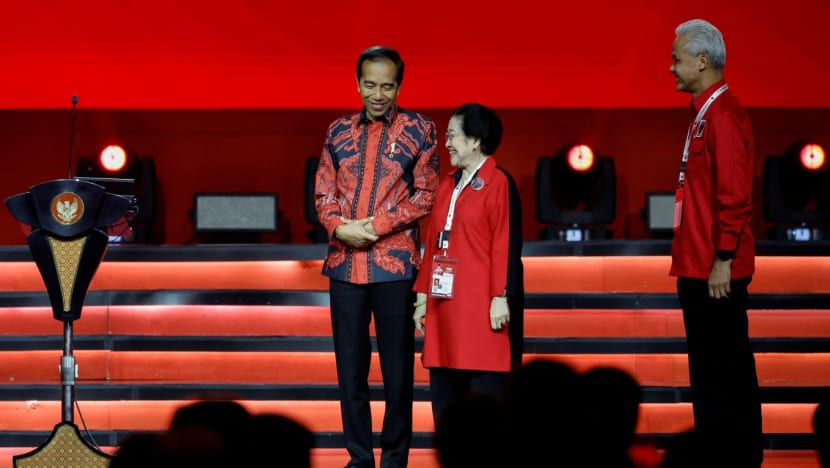
Experts believe that PDI-P’s stance could one day change should Prabowo’s popularity slip. It also depends on whether or not the PDI-P wants to nominate its own candidate at the 2029 presidential election.
“I’m sure the PDI-P has calculated the pros and cons of its current stance, particularly how it would affect the party’s popularity,” Hendri of Paramadina University said.
“As the 2029 (presidential election) approaches, I’m sure that stance will gradually change should (PDI-P and Prabowo’s Gerindra Party) become rivals again.”
But even if PDI-P eventually assumes a formal opposition role, analysts question whether it will be enough to restore public faith in Indonesia’s democratic institutions.
“We need an opposition, a strong, critical partner to build public trust in institutions like the legislature and the government as a whole,” said Kunto of Padjadjaran University.
“The public no longer sees any space for critical discussion or for checks and balances to take place. And without checks and balances in parliament, the people’s voices will find their way to the streets and these protests may only be the beginning.”








